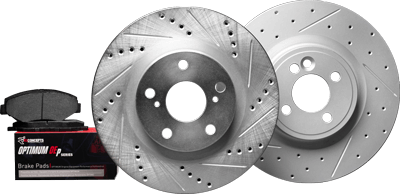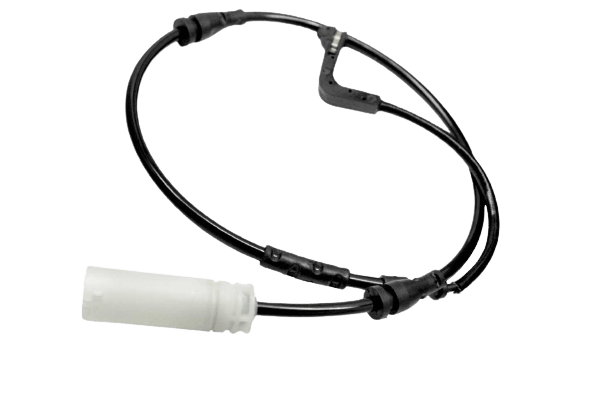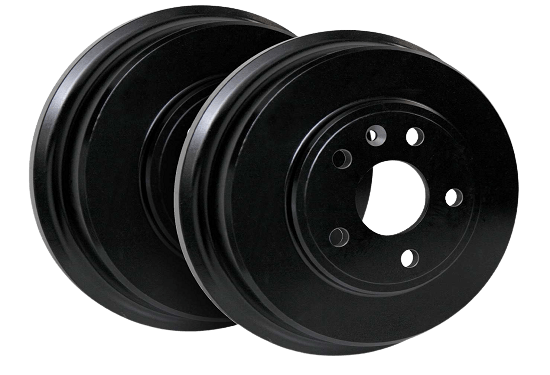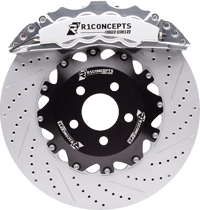When your parking brake light stays on, it’s a clear signal to take immediate action to ensure your vehicle’s safety. In this article, we have identified the causes of why your parking brake lights stays on all the time. Follow R1 Concept’s expert advice to confidently fix the underlying parking brake light issue.
Key Takeaways
A malfunctioning parking brake light that stays on is due to a variety of reasons, including a faulty parking brake switch, low brake fluid level, bad brake fluid level sensor, faulty wiring, or a malfunction in the Anti-Lock Braking System.
A parking brake light that stays on can be resolve by your own but often times this is a reason of a more complex issue so it is best to seek professional help to fix this issue.
It is not safe to drive with the parking brake light on as it can cause damage to brake components, impair braking capability, and increase wear on the vehicle, so it’s imperative to resolve the issue before driving.
Common Reasons for a Persistent Parking Brake Light

When your parking brake light won’t turn off, these indicate a problem. To gain clarity on these problems specifically, we need delve into each cause and get more details about them before starting our troubleshooting process.
Faulty parking brake switch
The common cause of why your parking brake light stays on is because of a faulty parking brake switch. This parking brake switch is a crucial part of your vehicle’s braking system and is responsible for activating the light on your dashboard when the parking brake is engaged. When this switch malfunctions, it can cause the light to stay on even when the brake is disengaged.
The causes of faulty brake switch are constant exposure to damage-causing elements like moisture and dirt. Weather is also a factor as to why parking brake switch malfunctions.
Brake handle not fully lowered
One of the reasons your parking brake light remains on could be due to a defective brake handle that doesn’t fully lower due to certain issues.
Problems regarding brake handle issues such as contaminated or reduced fluid levels, worn out brake pads, a faulty master cylinder or possibly even due to a defective switch are the reason why it cannot be fully lowered.

Parking brake not disengaging
In some cases, the parking brake light stays on when the parking brake is not releasing as it should. This may be caused by misaligned shoe positioning, rusting or sticking cables connected to the lever and brakes/pads. It’s like your car’s way of saying, “Hey, something’s not right here!” Misaligned shoe positioning can happen over time due to regular wear and tear or during a brake service if the shoes are not properly aligned.
Rusting or sticking cables can be due to harsh weather conditions or lack of maintenance. These cables connect the lever to the brakes/pads and are crucial for the correct operation of the parking brake. If these cables are rusted or stick, they can prevent the parking brake from releasing properly, causing the light to stay on.
Low brake fluid level

The parking brake light may stay on if there’s not enough brake fluid or if the pressure in the brake system is low. This can happen if there’s a leak or a problem with part of the brake system. It’s important to check the brake fluid often and fill it up if needed. If you’re constantly having to add more brake fluid, you should have a mechanic check your vehicle for any problems.
Bad brake fluid level sensor
A bad brake fluid level sensor is another common reason why your parking brake light stays on. When the sensor malfunctions or fails, it may incorrectly signal that the brake fluid level is low, causing the parking brake light to stay on on your dashboard.
A malfunctioning brake fluid sensor can be due to various factors. Age and wear and tear can degrade the sensor over time. Exposure to extreme temperatures can damage the sensor. Contamination from dirt or debris in the brake fluid can interfere with the sensor’s ability to accurately detect the fluid level. Additionally, damage to the sensor from an accident or rough handling during maintenance can cause it to malfunction. Careful handling of these components is crucial to prevent damage.
Faulty wiring or electrical issues
Poor wiring or a broken connection in the circuit might be what’s causing your parking brake light not to turn off. To identify issues with your vehicle’s braking system, utilize a multimeter and look for any variations of voltage levels in its components. Disconnecting and joining together the wires that link up at the switch will indicate if they are functioning correctly – as this should cause them to illuminate when successful.
Malfunction in the anti-lock brake system

The parking brake light and anti-lock brake system may keep their light on constantly if there is an issue in the braking system. If these lights appear, it’s a sign of a malfunction occurring within the brakes.
Indicators such as an unresponsive pedal, warning lights lighting up or erratic behavior can also point to an Anti-Lock Braking System problem. Expert help should be sought out right away for resolution purposes.
Can I Fix Parking Brake Light Issue By Myself?
Yes, you can resolve some problems related to the parking brake light on your own, particularly those that involve simple tasks such as addressing low brake fluid levels. But, when it comes to a malfunctioning parking brake, which is generally a sign of more complex issues, it’s recommended to seek help from a professional for accurate diagnosis and repair.
Is it safe to drive with the parking brake light on?
It is generally not safe to drive with the parking brake light on. Driving with the parking brake light on can cause a lot of problems. It can make your brakes work less effectively, create too much heat, wear out the brake parts unevenly, damage the parking brake system, and even put you in danger during emergencies.
Step-by-Step Guide to Troubleshooting Your Parking Brake Light
It’s now time to utilize the knowledge that has been acquired about why a persistent brake light may be on. This guide is here for you when it comes to diagnosing and taking care of such an issue with your parking brake indicator. Keep in mind, no matter how satisfying fixing automotive problems can be by yourself, safety must always come first. Thus do not hesitate to seek professional help if at any point discomfort arises or you are unsure what next steps should take place.
When repairing this particular car problem associated with the parking brake warning lamp being active all-the-time, then keep these information as helpful references while attending it.
Disengage the Parking Brake Properly

To address an ongoing parking brake light issue, it’s necessary to make sure the brake has been fully released. This should be done with care to avoid any jamming of the mechanism. Be certain not to miss this step and take your time when disengaging. Simply pulling up on the lever above the pedal will suffice in achieving a full release for proper operation. Regular cleaning of said button may also help prevent electrical complications from arising later down the line.
Inspect the Brake Fluid Reservoir and Lines

The braking system in your vehicle requires you to inspect the brake fluid reservoir and lines for proper maintenance. First, locate the container under the hood of your car and clean it off before opening its lid. Then check that there is sufficient fluid – if not fill up with an approved brand until reaching ‘maximum’ level determined by manufacturer instructions to avoid any repercussions on performance. Make sure all types of brake fluids meet specifications listed by automaker for maximum results from this critical part of a sound safety system while driving.
Test the Parking Brake Switch and Sensors

The parking brake, along with the switch and sensors in the braking system, are all key parts for a safe drive. If these components malfunction or get worn out (like brake pads), you may see an illuminated warning light on your dashboard even when it’s not necessary. This could indicate that something is wrong.
In order to test them out properly, first unplug the center console to turn off the notification light. Then use a digital multimeter in continuity mode to measure the resistance of each sensor separately. Last but not least, by releasing primary brakes one can check whether emergency brakes work as intended while slowly moving forward — like driving uphill without rolling back!
If any issue arises from these tests, then those faulty pieces need replacement accordingly – so they don’t interfere with safety standards anymore!
Check for stuck or frozen brake cables
When dealing with a persistent parking brake light, it is important to check whether the underlying cause may be stuck or frozen brake cables. Examine your vehicle for signs of rust or corrosion on the cable itself and take steps such as applying lubricant if necessary. If you think your brakes are not operating correctly, contact an expert who can assess and repair them properly. It is essential that these components move freely in order for the parking brake lights to switch off when released.
When to Seek Professional Help
If the parking brake light persists to be on, even after a thorough investigation and attempted repairs have been done, then professional help is necessary. Also, if any visible imperfections or misalignments are seen in relation to the brakes’ cables and connections, they should also receive appropriate attention from specialists for proper repair. Neglecting such problems may lead to Harm of its braking system due to possible leaks of hydraulic fluid, thus making it crucial that one ask qualified experts for an analysis immediately when noticing these issues involving their brake lights or systems not functioning correctly.
Preventative Measures for a Healthy Braking System
There is an age-old adage that emphasizes the importance of prevention over cure, and this applies to your car’s braking system as well. Visual inspections, regular check-ups and changing brake fluids regularly are some preventive maintenance measures which can help avoid problems with both parking brake lights and overall breaking performance.
It’s also important not to underestimate how crucial brake examinations could be in helping prevent any sort of light issues associated with the vehicle’s stopping systems, it makes sure potential risks or failures connected to them are taken care of right away before they worsen into safety hazards.
Summary
Overall, a persistent brake light can be both irritating and concerning. By understanding the most frequent root causes of this issue and having an idea on how to address them, you now have all the necessary information for resolving it in order to ensure your vehicle’s safety. It could possibly stem from either a broken parking brake switch or handle not fully lowered when disengaging properly. Or due to any defective wiring/electrical components as well as low fluid level or faulty Anti-Lock Braking System system within its braking mechanism, whichever may cause such illumination. Now that you’re aware of these possibilities, take appropriate actions accordingly if something is beyond what you feel comfortable attempting alone, but don’t forget preventive maintenance check-ups which will go far towards keeping your car running with no issues related to brakes nor lights!
Frequently Asked Questions
How Much Does It Cost to Fix a Parking Brake Light Problem?
Repair costs for a parking brake light issue can vary. Simple fixes like replacing a switch or sensor might cost $50 to $200. More complex issues like Anti-Lock Braking System malfunctions or wiring damage could cost $200 to $600 or more. Costs depend on your vehicle, location, and local mechanic rates.
Can I Get a Traffic Ticket Because of a Parking Brake Light Problem?
While it’s not common, it’s possible to receive a traffic ticket due to a parking brake light problem. This is because a malfunctioning brake light could potentially pose a risk to other drivers on the road, as it may give the false impression that you are braking when you are not. However, laws vary by location, so it’s important to check with local regulations. If you’re pulled over for a malfunctioning brake light, it’s usually considered a “fix-it” ticket, meaning you won’t have to pay a fine if you get the light fixed in a certain amount of time.









